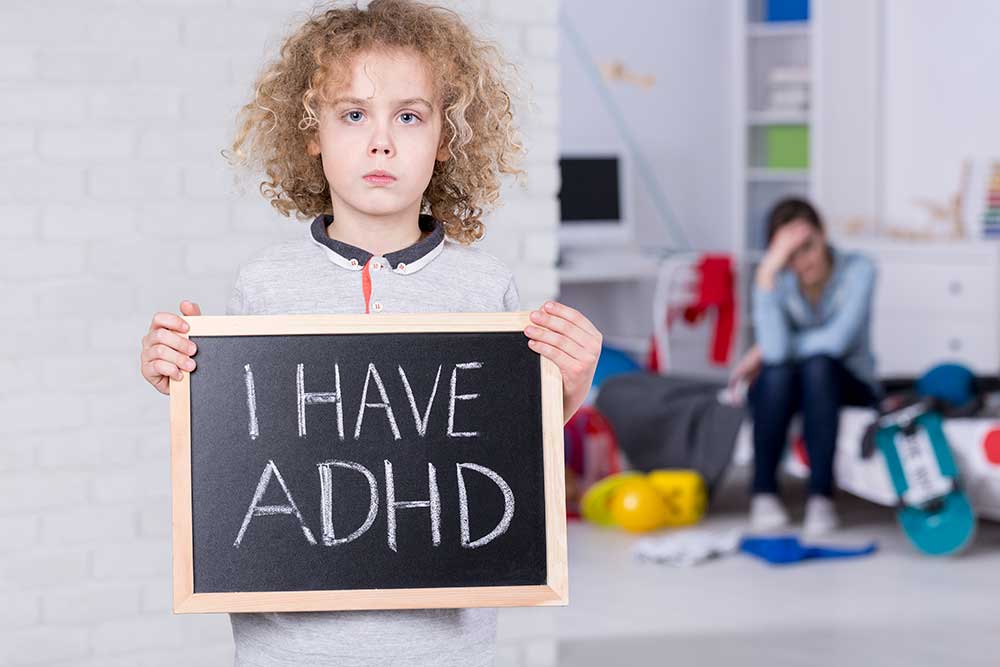
In our daily lives, we experience a lot of issues. In the process, these issues result in other problems such as the inability to remember things, constant complaining, getting angry unnecessarily, and being disorganized. Is the work of Attention Deficit Hyperactivity Disorder (ADHD)? Let’s not be sure just yet. ADHD diagnosis is not a diagnosis that can be easily seen.
A lot of people have been experiencing various forms of disorder ranging from sleeplessness, constant tiredness, hopelessness, and lack of focus. Still, in a real sense, all these symptoms are related to ADHD. However, having all these symptoms isn’t enough to show that you have ADHD.
If you want to find out if you have ADHD, the help of a health practitioner is required to carry out different tests using the required health methods needed for ADHD diagnosis.
An essential part of this health method includes the use of a patient question and answer checklist to ascertain the issues going on with the patient, both present and past. Most times, a medical examination is carried out to check if those symptoms are caused by any other thing besides ADHD.
A lot of people confuse other health disorder symptoms with ADHD. For example, emotional cases such as heartbreak or the loss of a loved one can lead to disorder symptoms that are familiar with that of ADHD. However, it doesn’t mean the patient in question has to go through any form of ADHD assessment; they are other methods set aside for those.
How To Diagnose ADHD
The case of ADHD occurs in different ways in every individual. Which is why health practitioners have come up with different methods to help them with their diagnosis? Patients must be straightforward and open with the professionals when the ADHD assessment is going on; this will help bring about a thorough and precise conclusion to the diagnosis.
If you intend to receive an ADHD diagnosis, the symptoms have to be very potent, for example, high impulse rates.
Factors Medical Professionals consider before Carrying out ADHD Diagnosis
THE SEVERITY OF THE SYMPTOMS: Medical professionals look at the severity of the symptoms, by considering the negative influence the symptoms have on the patient. Patients that have ADHD encounter a lot of issues in their lives. Issues like bank debts to rent debts, career failures, marital problems, and lots more. All these are evident in most patients that have ADHD.
WHEN THE SYMPTOMS BEGAN: Medical professionals often try to trace back when these symptoms began to occur in the patient for the very first time. For most patients, ADHD starts to happen from childhood. So patients must trace back if there were any occurrence of ADHD symptoms in their childhood.
THE TIME THE PATIENT HAS BEEN EXPERIENCING THE SYMPTOMS: A symptom reoccurring for up to 6 months should require ADHD diagnosis.
THE EXACT TIME, LOCATION/ENVIRONMENT THE SYMPTOMS OCCUR: ADHD symptoms are known to occur in different locations and environments. For example, in the cinema, at home, in the club or even in your lecture theatre. If the symptoms in the patient occur in only one environment, then it isn’t likely to be caused by ADHD.
Some Known ADHD Symptoms related to Lack of Attention
- Continually making mistakes and failing to concentrate on things that matter
- Lacking the zeal to focus and inability to complete tasks
- Often carried away when been spoken to
- Failure to follow instructions as they were given
- Lack of composure when it comes to organizing anything
- self-isolating tendencies, refusing to engage in any activity that has to do with mental interaction
Some Known ADHD Symptoms related to Impulsiveness and Hyper-activeness
- Constant fidgeting of the hands or silent murmuring and mumbling
- Vacation of the seat when it is time to be seated
- Unstable and reactive when engaging in general activities
- Feelings of restlessness in situations one is supposed to remain calm.
- They act as if being controlled
- They respond to questions before the sentence is concluded.
- Impatience
- Talking too much regularly
How to Get the Right Medical Professional for ADHD Diagnosis
The following are medical professionals that have the expertise to carry out ADHD diagnosis: Physicians, Clinical Psychologists, and clinical social workers. The process of choosing the right medical professional can be quite hectic at times. Whenever you intend to take such actions, the following will guide you in getting a suitable specialist for ADHD assessments for your kids and yourself.
GET THE RIGHT RECOMMENDATION: When looking for a medical professional that specializes in ADHD diagnosis, it is essential to make inquiries with health practitioners and people you have a close relationship with to see if they will have any recommendation for you. Also, make sure you question their recommendation to confirm if it’s exactly the type of specialist you want.
DO YOUR RESEARCH: Try to research more on the specialist you plan on visiting. You can examine his educational and professional qualifications and get testimonies from the past patients he diagnosed. All these are very necessary so that you can have a feel of what you will experience.
FEEL RELAXED AND OUTSPOKEN: One of the most critical factors that will help you get the right specialist you are looking for is for you to be relaxed and be outspoken with the prospective specialist. Do not hide things from them, be candid, whatever questions you have in mind, ask them. It is the best way to interact with them before deciding on the specialist that suits your preference.
MAKE INSURANCE AND PRICE INQUIRIES: You need to make inquiries on whether the ADHD diagnosis can be covered by medical insurance and the price required by the specialist to carry out the ADHD assessment. Some insurance does cover ADHD assessments. However, it doesn’t work for all specialists.
How to Diagnose Adults with ADHD
For most people, ADHD is discovered in them once they are adults. Others go through diagnosing their children to learn more about ADHD and all that it entails. It even gets to a point where they come to terms that they also have this condition.
Some people can manage these symptoms to a point where the symptoms become excessive and difficult to manage. When it gets to this point, these symptoms end up causing so many problems in the life of the patient. When you discover that you have these excessive symptoms, do the right thing by consulting a medical professional before scheduling a date for evaluation.
The evaluation process shouldn’t be a difficult one. It is why we will help you in understanding what to expect from specialists when you intend to take one. When you are getting an ADHD evaluation, the following are what you can expect from the physician in charge of your assessment. The physician will:
- Ask you questions about the symptoms; questions like when they started, how long you have been experiencing them, and issues that they caused.
- Carry out attention span tests and symptom checklist tests will be carried out as they are part of the ADHD evaluation.
- Have a conversation with one of your family members or friend about your condition.
- Perform a medical exam for you to rule-out other possible reasons for the symptoms.
Get Tested for ADHD if you Have these Experiences
- Frequent loss / quitting of jobs
- Performing below your capacity either at work or school
- Failing to get things done, like meeting schedules and getting to pay your bills at the appropriate time
- Forgetfulness, especially of things that matter most
- Inability to complete any task given
- Getting angry over little things with little or no significance
- Worrying too much over your situation
How to Diagnose Children with ADHD
It is very vital to work as a team when seeking help for ADHD diagnosis for your child. It is not a job for you alone as a parent. Together with the specialist that will conduct the evaluation, you both can make the best out of the situation, thereby ensuring that the adequate treatment is met for your child’s improvement. As a parent, it is essential to know your role and the impact you have on your child mentally and practically. In this period, you can do the following for your child:
- Support your child emotionally during the evaluation process.
- You have to make sure that your child gets the right physician for the ADHD diagnosis.
- Be open to the physician in charge of the evaluations when asked questions related to your child’s condition.
- Try to follow the evaluation process to ensure that it is going according to plan.
When it comes to ADHD diagnosis in children, the evaluation is conducted by multiple professionals. The role of Educators is also emphasized as they also play a significant role in the evaluation process.
Unlike adult diagnosis, laboratory tests and other tests are not utilized. The specialists make their findings based on what they observe from the child’s symptoms. The specialist in charge of your child’s assessment will ask you the following question
- Your child’s medical history
- Evaluation by physical examining
- Interact with your child and their his/her school teacher
- Utilize a professional ADHD screening tool
- Evaluating emotional improvements and IQ by making use of psychological assessments
Managing Your Condition
Managing your condition takes time. Especially when it comes to getting the right treatment, but you need to be determined to help yourself by educating yourself on ADHD, getting support from your friends, family, and loved ones. Make sure you practice a lifestyle that will help promote your health and wellbeing.
Do you have a loved one struggling to cope with ADHD? Contact us at Treasure Health System.

